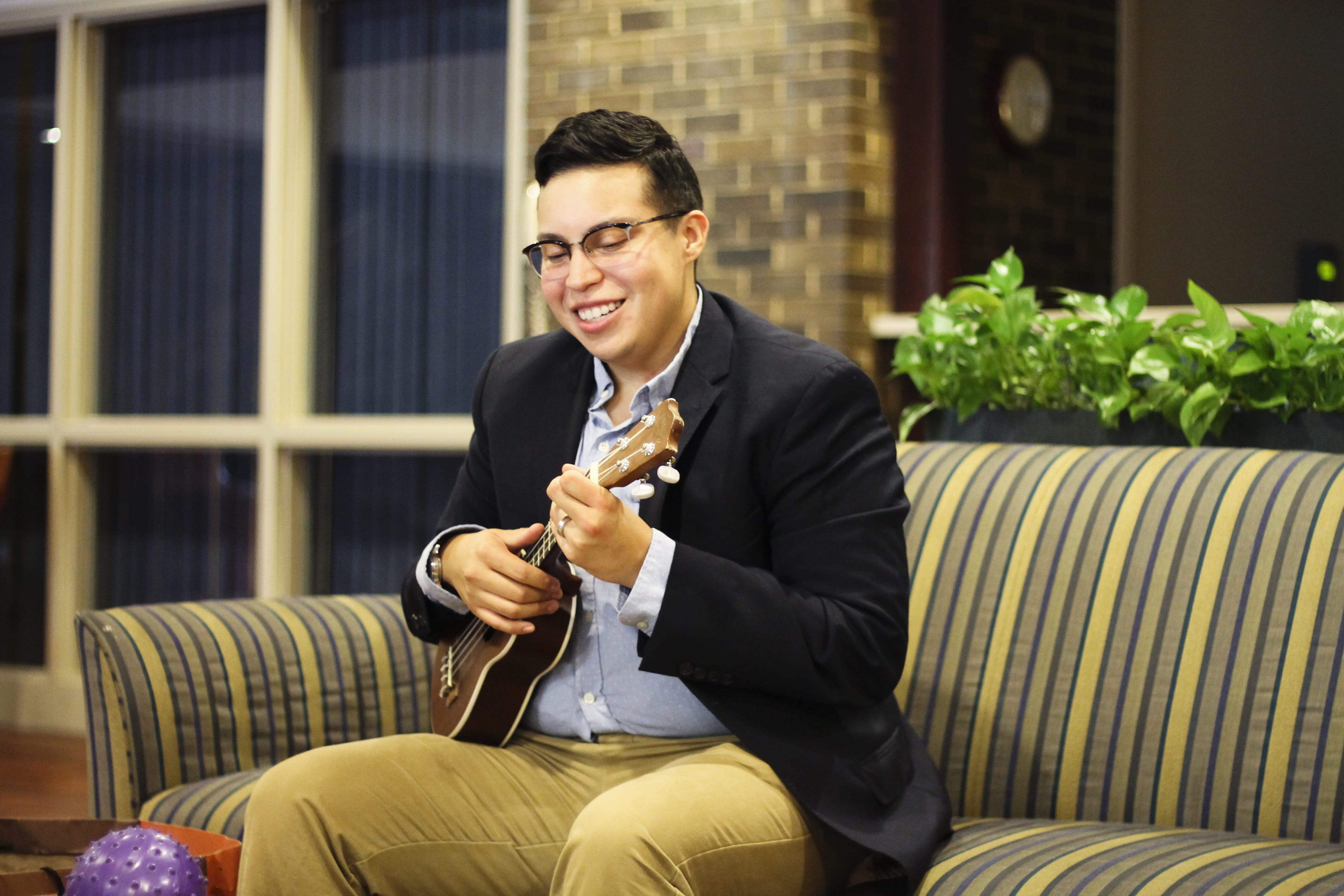SLU Research: Can a Treatment for Dementia Also Help Caregivers?
Saint Louis University researchers are studying whether a non-drug therapy given to groups of patients who have dementia can be adapted to improve the quality of life for individual patients and their caregivers.
The treatment, called Cognitive Stimulation Therapy, was developed in the United Kingdom as an educational and socially engaging exercise that appears to be as effective as current medications in heightening memory and improving thinking for those who have dementia.
Cognitive Stimulation Therapy is a series of structured group sessions that focus on specific topics chosen by participants, such as foods, music, sports and holidays, which spark childhood memories. Guided by a facilitator who brings an assortment of objects that stimulate multiple senses, participants connect those remembrances to what is happening in their lives today.
SLU teaches the treatment to Missouri students and professionals in aging services through its Geriatric Workforce Enhancement Program, which is funded by the federal government to improve care for older adults. As dementia progresses, though, some people are unable to participate in group-structured activities outside their homes.
It’s so difficult to be a caregiver; they often feel isolated, overwhelmed, powerless and hopeless."
Marla Berg-Weger, Ph.D., LCSW
SLU is studying if the therapy can be modified from group to individual sessions to offer similar stimulation, says Marla Berg-Weger, Ph.D., LCSW, professor of social work Saint Louis University, who co-directs the Geriatric Workforce Enhancement Program with John Morley, M.D., professor of geriatrics at SLU.
Researchers will teach the technique to 14 family caregivers of patients who have mild to moderate dementia, who will engage with their loved one in half-hour sessions three times a week for 25 weeks. Researchers will then determine if the individualized therapy makes life better for both the patient and caregiver. They will analyze if it improves mood, cognition, mobility and quality of life for those receiving care, enhances the level of well-being for the caregiver and enriches the relationship between the two.
“It’s so difficult to be a caregiver; they often feel isolated, overwhelmed, powerless and hopeless,” said Berg-Weger, who studies family caregiving and meaningful activities for those who have dementia. “We want to know if Cognitive Stimulation Therapy can help both the patient who has dementia and his or her family caregiver, benefitting a larger group of people.”
The need for new cost-effective treatments for dementia is great. According to 2015 Alzheimer’s Association statistics, one in nine people age 65 and older – or an estimated 5.3 million Americans – have dementia. That number is expected increase by 40 percent by 2025, as people live into their 80s and 90s.
“With the number of people diagnosed with dementia on the rise and pharmaceutical interventions not yet developed to prevent or remedy cognitive impairment, we need non-pharmaceutical treatments to support those who have dementia and their families,” Berg-Weger said. “Our research will tell us if Cognitive Stimulation Therapy might be part of the solution and should be practiced on a wider scale.”
Berg-Weger’s collaborators on the project are Sue Tebb, Ph.D., professor of social work at SLU, and Dan Stewart, a doctoral student in SLU’s School of Social Work.


















